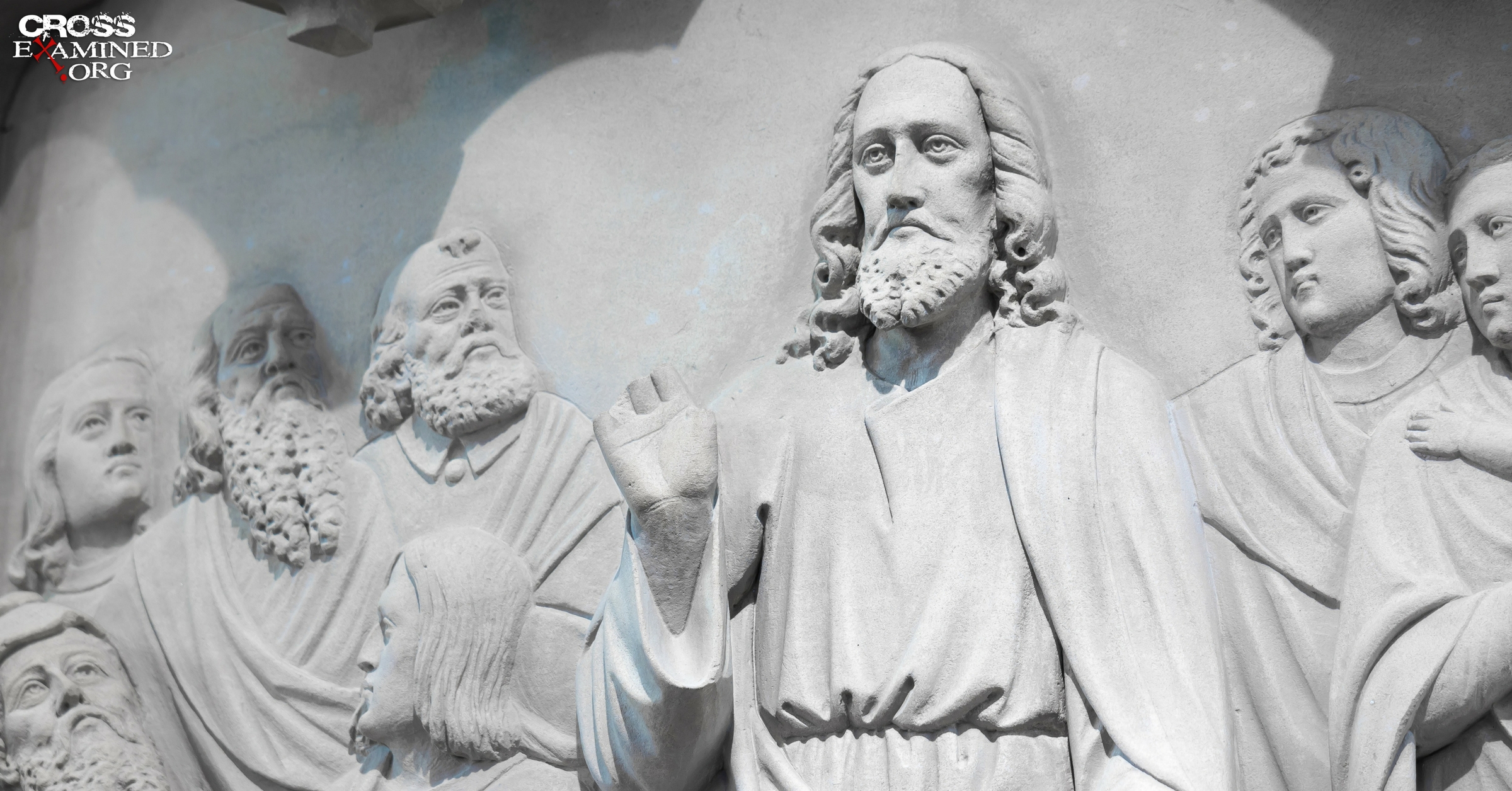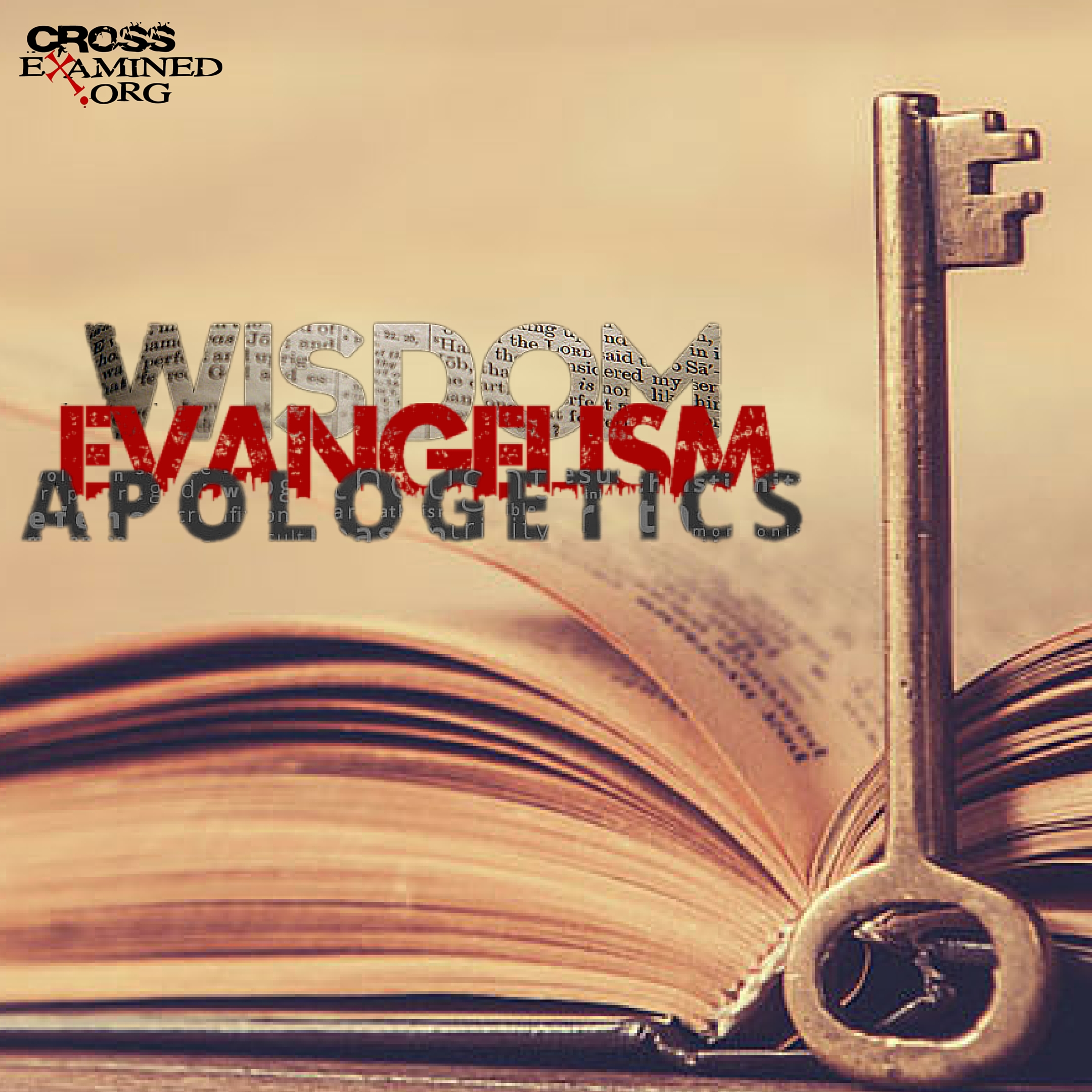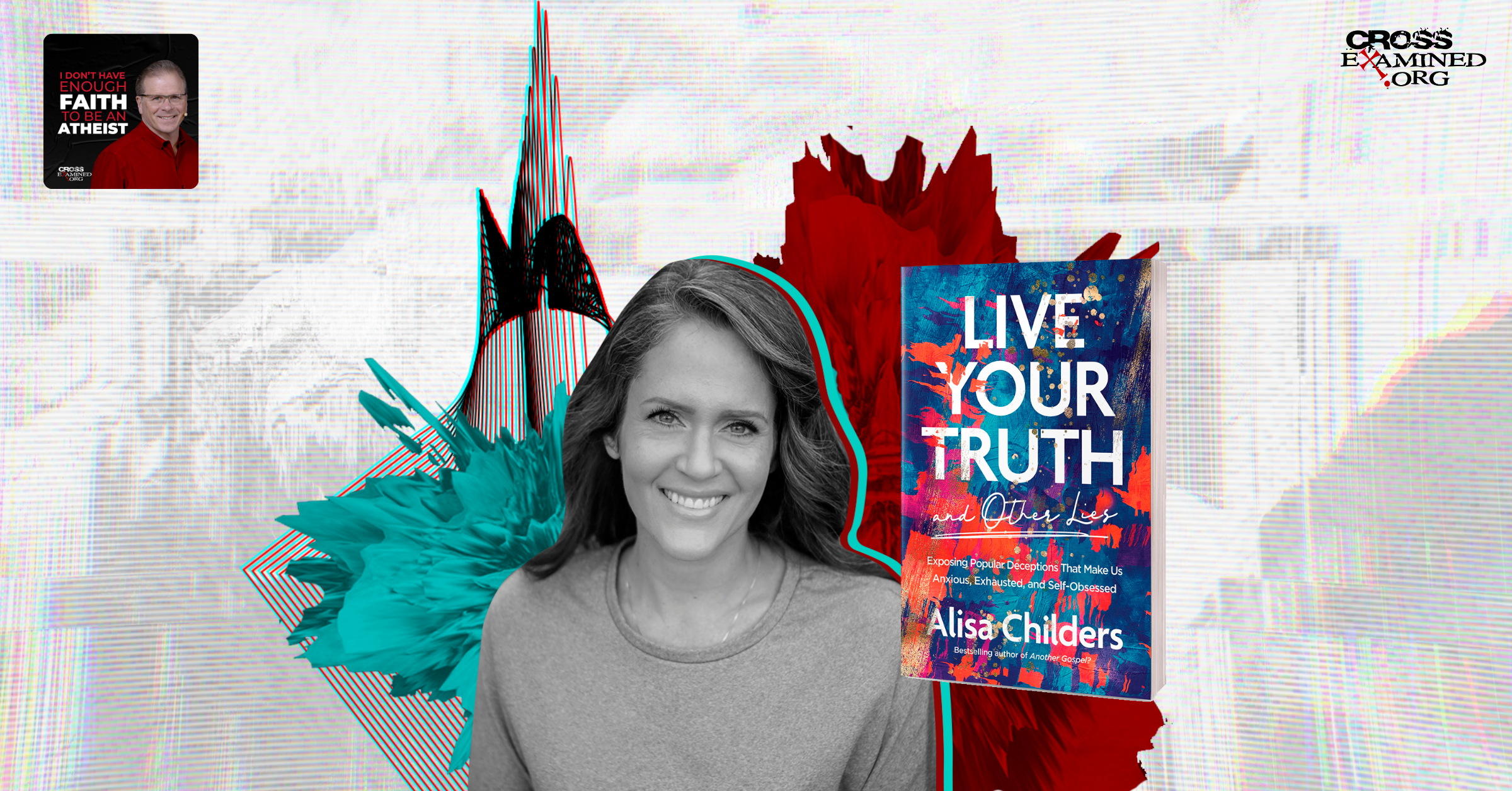Got Doubts? Stop Doing This!
From working in public apologetics ministry for a few years now, one common mistake I see from Christians struggling with their faith is that they try and prematurely flex their apologetic muscles by spending tons of time listening to atheist YouTubers, podcasts or reading blogs but they don’t get the bulk of the Christian evidences strong under their belt first. When they come across a few things that stump them, they get troubled, anxious, or even set aside their faith altogether. This is falling prey to what the great English logician Richard Whately called “the fallacy of objections.”
Whately defined the fallacy of objections[i] as “showing that there are objections against some plan, theory, or system, and thence inferring that it should be rejected; when that which ought to have been proved is, that there are more, or stronger objections, against the receiving than the rejecting of it.”
I understand that you want to mitigate against your biases by listening to the other side. However, until you yourself can articulate a robust, positive case for Christianity, I don’t recommend that you do that. At all.
If the Bible is correct by describing faith as a “precious” thing (2 Peter 1:1[ii]) and you’re throwing your weak faith into the fires of criticism without understanding the shape of the argumentative landscape first, you’re not being “wise” by trying to minimize your biases, you’re being careless. And no, I’m not saying you should Pascal’s Wager yourself into faith or “lower the epistemic bar”, either. But I will say that you are not performing your duty of inquiry properly and you’re going to end up being another statistic, or worse, if you’re not cautious.
Regarding the Fallacy of Objections, Whately went on to write:
“This is the main, and almost universal Fallacy of anti-christians; and is that of which a young Christian should be first and principally warned. They find numerous ‘objections’ against various parts of Scripture; to some of which no satisfactory answer can be given; and the incautious hearer is apt, while his attention is fixed on these, to forget that there are infinitely more, and stronger objections against the supposition, that the Christian Religion is of human origin; and that where we cannot answer all objections, we are bound, in reason and in candour, to adopt the hypothesis which labours under the least. That the case is as I have stated, I am authorized to assume, from this circumstance,—that no complete and consistent account has ever been given of the manner in which the Christian Religion, supposing it a human contrivance, could have arisen and prevailed as it did. And yet this may obviously be demanded with the utmost fairness of those who deny its divine origin. The Religion exists; that is the phenomenon. Those who will not allow it to have come from God, are bound to solve the phenomenon on some other hypothesis less open to objections. They are not, indeed, called on to prove that it actually did arise in this or that way; but to suggest (consistently with acknowledged facts) some probable way in which it may have arisen, reconcilable with all the circumstances of the case. That infidels have never done this, though they have had 1800 years to try, amounts to a confession, that no such hypothesis can be devised, which will not be open to greater objections than lie against Christianity.”
Richard Whately, Elements of Logic, 9th ed.[iii] (London: Longmans, Green, Reader, & Dyer, 1870), pp. 144-45.
Whately is spot on. The reason why I can read Bart Ehrman books, listen to secular historical Jesus classes online, or watch YouTube counter-apologists and be untroubled isn’t simply because I’m just so biased towards Christianity but because I have, for the most part, firmly in place the bulk of the evidence on the subject. Furthermore, I’m aware that everything doesn’t depend on whether I can answer this or that objection when I happen to stumble on something novel.
For example, over and over again, I have seen arguments against the Gospels be based on an over-reading, an argument from silence, or ignoring the possibility of real, independent access to events etc. I also know that even if I don’t know why Jesus said X or Leviticus says Y, or how to resolve that apparent contradiction, it doesn’t mean that my entire edifice is collapsing. The evidence for Christianity is a lot tougher than that, as Whately indicates. The same kind of thing holds true for many well-established scientific theories. We don’t toss out a good theory based on some counter evidence we don’t quite understand yet.
If you are easily shaken and troubled by pop counter-apologists online (and I don’t care if they have a PhD and have published dozens of books), here’s my advice: Stop listening to them. At least for a season. Learn the positive case for Christianity first. And here I’m not talking about a handful of philosophical arguments for the existence of God and some minimal facts argument for the resurrection.
At this point, I’m sure the skeptics would say that I’m just circling the wagons and saying “indoctrinate” yourself first. But that’s just not true. What I’m saying is this: Don’t act like “if Christianity is true, it can take the heat.” Christianity can take the heat, but an unprepared mind can’t. And investigation of the evidence for Christianity does not mean digging into everything anyone has ever said about or against it and having to give an answer. Skeptics can confidently assert a ton of (ultimately unpersuasive) objections as though they were real problems. But think about your approach to other issues. According to some theories, Jesus was invented by the Romans to pacify the people into being OK with slavery. How thoroughly do you investigate the “hoax” side of that argument? Wouldn’t an good informed atheist who believes in the historicity of Jesus recommend someone uninformed and confused about this issue read a good book or two on the existence of Jesus first before they get too muddled? Of course they would.
Again, once you have the bulk of the Christian evidences in place and you understand what the general argumentative landscape looks like, you don’t need to waste your precious time looking into everything that every dude with an internet connection and some video editing software has said against it. And when you stumble across them, you should be able to see the predictable patterns their arguments fall into.
In this context the words of George Horne, another 18th apologist, has some sage advice:
In the thirty sections of their pamphlet, they have produced a list of difficulties to be met with in reading the Old and New Testament. Had I been aware of their design, I could have enriched the collection with many more, at least as good, if not a little better. But they have compiled, I dare say, what they deemed the best, and, in their own opinion, presented us with the essence of infidelity in a thumb-phial, the very fumes of which, on drawing the cork, are to strike the bench of bishops dead at once. Let not the unlearned Christian be alarmed, “as though some strange thing had happened to him,” and modern philosophy had discovered arguments to demolish religion, never heard of before. The old ornaments of deism have been “broken off” upon this occasion, “and cast into the fire, and there came out this calf.” These same difficulties have been again and again urged and discussed in public; again and again weighed and considered by learned and sensible men, of the laity as well as the clergy, who have by no means been induced by them to renounce their faith…Many and painful are the researches sometimes necessary to be made, for settling points of that kind. Pertness and ignorance may ask a question in three lines, which it will cost learning and ingenuity thirty pages to answer. When this is done, the same question shall be triumphantly asked again the next year, as if nothing had ever been written upon the subject. And as people in general, for one reason or another, like short objections better than long answers, in this mode of disputation (if it can be styled such) the odds must ever be against us; and we must be content with those for our friends who have honesty and erudition, candor and patience, to study both sides of the question.—Be it so.
George Horne, Letters on Infidelity
As Horne implies, Christians have answered the same tired objections over and over, yet that won’t stop an “exvangelical” with a TikTok or YouTube account from saying it triumphantly as if no one has ever responded to it before. Furthermore, answering objections often takes a lot longer than a short statement of them, even if the objections themselves are based upon “pertness and ignorance.”
And finally, for goodness’ sakes, stop looking at all apologists as defense attorneys or God’s public relations firm doing “damage control.” This is what many counter-apologists have claimed, but it just poisons the well. Maybe consider that at least some apologists are defending their faith after scrutinizing it for years; they are not just trying to defend their predetermined conclusion and soothe their cognitive biases. Don’t fall for this bulveristic, pseudo-psychoanalytical trash. According to the website Logically Fallacious[iv], bulverism is “the assumption and assertion that an argument is flawed or false because of the arguer’s suspected motives, social identity, or other characteristic associated with the arguer’s identity.”
The more apt parallel for a good apologist is to an investigative journalist, reporting for popular consumption the results of a fair and balanced inquiry. These same skeptics often also seem to think that honesty in investigation requires that we start off in disbelief. In response to that, here’s one last awesome quote from another one of those amazing 18th-century apologists, John Leland:
It is not necessary to a just inquiry into doctrines or facts, that a man should be absolutely indifferent to them before he begins that inquiry, much less that he should actually disbelieve them; as if he must necessarily commence atheist, before he can fairly examine into the proofs of the existence of God. It is sufficient to a candid examination, that a man applieth himself to it with a mind open to conviction, and a disposition to embrace truth on which side soever it shall appear, and to receive the evidence that shall arise in the course of the trial. And if the inquiry relateth to principles in which we have been instructed, then, supposing those principles to be in themselves rational and well founded, it may well happen, that, in inquiring into the grounds of them, a fair examination may be carried on without seeing cause to disbelieve, or doubt of them through the whole course of the enquiry; which in that case will end in a fuller conviction of them than before.
A View of the Principal Deistical Writers, 1837 edition, p. 129
Leland hits the nail on the head. If you listen to many of the counter apologists, it’s as if they’re saying that the Christian is obligated, in the name of fairness and honest examination, to set aside their faith while looking into it and that the questioner should spend most of their time listening to their negative case. (And often they themselves cannot give you a steelman argument for Christianity upon request.) But honest inquiry and the acquisition of knowledge can continue while still following Jesus. Setting aside your faith while you are investigating it would be a crazy thing to do if Christianity is true. Consider that you might have a lot more evidence for Christianity than you may realize that you’re just not recognizing.
Finally, If you don’t know what the evidence looks like, ask me or others and I can recommend some resources. Avail yourself of talkaboutdoubts.com [v]and talk to some scholars and experts 1-on-1. Find a community of apologists more experienced than yourself.
Then you can consider diving into the counter apologists’ material, one resource at a time, one objection at a time, rather than overwhelming yourself. Otherwise, consider that you’re probably being like an overconfident fool who, after learning a few fighting moves, tries to jump in the ring with more experienced fighters. You’re going to look foolish and get hurt.
Now again, lest I be misunderstood, I am speaking to less experienced Christians. For the more seasoned believer, I think that we should let the critics speak. Often they are in a good place to discover flaws in our own reasoning, which may be invisible to us. We ignore them at our peril. I believe in that and practice that.
We should be able to identify who the best critics against our view are and regularly seek out what they have to say. It is wise to step outside your echo chamber and recognize that smart people can argue in good faith and yet disagree with you. But I wouldn’t throw a novice a Bart Ehrman or a Sam Harris book and say “sink or swim, dude.” If one is going to read atheist apologists, one should read them with guidance from people who really do know how to answer them. But our highest priority should be showing the untrained believer how much good evidence there is for Christianity.
Footnotes
[i] https://historicalapologetics.org/richard-whately-the-fallacy-of-objections/
[ii] https://biblia.com/bible/nkjv/2%20Pet%201.1
[iii] http://books.google.com/books?id=eLgIAAAAQAAJ&pg=PA144
[iv] https://www.logicallyfallacious.com/logicalfallacies/Bulverism
[v] http://talkaboutdoubts.com/?fbclid=IwAR278dE8CFdCYKbsT-bLD3fsnOPHW6jTq0wyIaqDLqbvQ2Ewh658SaJxHYY
Recommended resources related to the topic:
Counter Culture Christian: Is There Truth in Religion? (DVD) by Frank Turek
When Reason Isn’t the Reason for Unbelief by Dr. Frank Turek DVD and Mp4
_____________________________________________________________________________________________________________________________________________________
Erik Manning is a Reasonable Faith Chapter Director located in Cedar Rapids, Iowa. He’s a former freelance baseball writer and the co-owner of a vintage and handmade decor business with his wife, Dawn. He is passionate about the intersection of apologetics and evangelism.
Original Blog Source: https://bit.ly/3smfZMp











